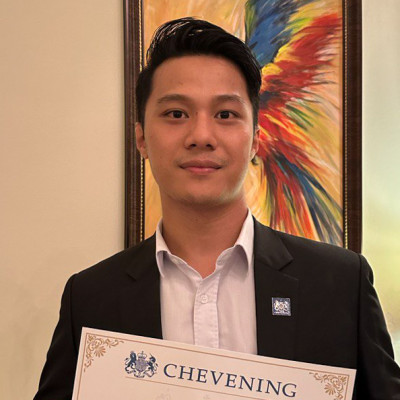Sessions / Technology / Online Learning / CALL / MALL
Trial and Error: Learning to Teach with Computers in a 1:1 Program #3585
This case study followed two junior high English teachers for the first year of a 1:1 device program in which each student was given a Chromebook. The aim was to discover how the participants used the computers and their beliefs regarding the pedagogical benefits of the technology through a series of semi-structured interviews. Students’ responses were analyzed with a Likert-scale questionnaire and open-ended questions to determine if how the teachers utilized the devices led to differing perceptions regarding their usefulness, ease of use, and attitudes. Examples of student presentations were examined to ascertain how the teachers’ utilization of the devices influenced produced work. Although teachers varied in the manner, frequency, and purpose with which they employed the Chromebooks, both sets of students responded positively to their implementation, but had differing concerns regarding the technology. With 1:1 devices programs becoming ubiquitous, such case studies can contribute to the collective learning experience.
Providing Formative Feedback on Writing in a Blended ELT Classroom #3593
Blended learning is an educational model which makes use of both traditional face-to-face classroom settings and online learning environment. This approach provides more freedom to adjust the learning process according to learner needs and can be effectively used in providing feedback to students. Formative feedback is an ongoing process which makes learners reflect on their own work and evaluate their learning. Providing formative feedback on students’ drafts in teaching writing increases their confidence and develop better writing practices. In this talk, we will discuss how effectively blended learning techniques can be used in providing formative feedback to learners in writing tasks and thereby increase learner autonomy and improve critical thinking skills, and creativity. We will demonstrate how online tools can be used in providing formative feedback on writing and also discuss how teachers can encourage peer feedback using various online tools.
Utilising MAVR in Learning English: An ESL Low Achievers Context #3625
Partner Session (MELTA)
Learning English language for learners with learning difficulties is not an easy process. These students will need learning assistance more than usual in order to give them an attractive and attentive learning environment. This study aims to provide the students with a learning assistance using technological advancement in education. Here, mobile AR technology through an android application is implemented to develop a simulation-based concept learning system on the vocabularies used in the textbook. It will help the students to visualize and use the words throughout the game-based activities. While there are many existing AR mobile apps created for math and sciences, none has focused on the curriculum of learners with learning difficulty or primary school students. In addition, it offers the best and user-friendly augmented reality (AR) experience for classrooms. 45 primary school students in Selangor were recruited in this study, and they were provided access to an AR-game based apps for learning English vocabularies with mobile computing devices. Vocabularies were measured using British Picture Vocabulary Scale II and analysed with one-way repeated measures ANOVA. Analysis showed that there was an increase in the scores and the differences between the levels of the within-subjects factor was significant. This implies that Augmented Reality materials can be used as an interactive tool for special need learners in learning a language. This study will highlight the role of teachers in the implementation process and point out possible directions for more effective application of AR in this field.
The Use of Internet-Based Paraphrasing Tools in Developing Written Language Complexity #3642
L2 essay writing depends heavily on resources such as inputs from prewriting tasks, teachers, or dictionaries. The availability of Internet-based paraphrasing tools recently has offered learners a rich resource in terms of structures and vocabulary. The study explores how these tools help learners develop lexical and structural complexity in their written language. Totally 10 senior English majors from a college were allocated into two groups to write a 200-to-250-word essay every week during a course of 6 weeks. One group was instructed to use Wordtune – an AI-powered paraphrasing tool to revise their essays in the following week. The result from quantitative data shows no significant difference in lexical diversity while structural complexity of the group with Wordtune has increased slightly over time. Qualitative data from a week-by-week timescale also show how learners utilized and internalized the structures form the tool. Overall, the participants all felt positive about the tool.
When AI Learns to Write: Understanding Its Impact on EFL Writing Classes #3523
Writing is one of the four skills often taught in a foreign language classroom. This involves teaching varying strategies in how to effectively write a 5-paragraph essay. Disruptive technologies like neural machine translation systems (i.e., Google Translate, DeepL) now allow students to accurately translate text from their L1 to the L2. More recently, GTP-3 has been released and can generate whole essays from a simple prompt. In this presentation, I will first provide a short background on GTP-3; then examine essays generated by text-da-vinci3, the most capable GTP-3 model available through OpenAi; and finally explore the impact this technology will have on writing classes at the university level. I conclude by considering ways to use GTP-3 as a teaching assistant and how education needs to adapt and evolve with these disruptive technologies by focusing on developing learners’ creative and critical thinking and collaboration skills as well as their emotional wellbeing.
Minecraft: PBL 21st-Century program proposal #3508
Launching in 2011, Minecraft’s popularity has continued to grow. The sandbox nature of Minecraft allows for incredible freedom in terms of competition, cooperation, solo, structured, semi-structured, or free-roam activities. The authors have taken their experience and student feedback from their 2-year long Minecraft project conducted through their university’s Self-Access Learning Center to propose a more formal course and/or certificate program. This program will focus on increasing students’ English-based 21st-century skills through a project-based framework. They have put together three possible program plans to better accommodate teacher and administrative needs, a full 16-week semester option, an 8-week elective course, and the most versatile, a 6-week certificate workshop. Overall academic goals are framed through a CEFR lens with various “can-do” milestones. Various outputs have been proposed such as a PBL learning journal, Minecraft co-op puzzle maps, Minecraft-theme “lifeboat exercises,” and having students create how-to tutorial videos.
Graduate STEM Student Perspectives and Implementation of Machine Translators in South Korea #3552
As technology advances, and more students have constant access to cell phones, laptops and tablets inside classrooms, the use of machine translation (MT) by language learners will rise. In order for instructors to better design courses they should strive to understand how students are using MT, as well as student attitudes towards this technology. This study examined the perspectives of South Korean graduate students at a STEM university towards the usage of MT in academic settings. This study featured a survey of 100 participants, and found positive correlations between the use of translators on written assignments, important academic work such as theses, as well as a proclivity to use machine translation to support daily academic tasks. Students also showed a strong belief that MT has benefits as a language learning tool. As a result of this study, language teachers may consider incorporating MT education within their curriculum.
ESL Malaysian University Students’ Perceptions toward Using Smartphones for English Learning #3601
With rapid developments in the field of digital literacy, technology has shifted from computer-assisted language learning (CALL) to mobile-assisted language learning (MALL). The smartphone plays an important role in helping students learn English. Therefore, the aim of this study was to investigate the perception of English learning among ESL students in Malaysia. This study uses a quantitative research design. An online questionnaire was used to collect data, which was completed by 150 students in selected public universities in Malaysia. The result was analysed using descriptive and inferential statistics such as percentage, frequency, mean and standard deviation. The empirical findings of the study show that students have a positive perception towards the use of smartphones as a potential tool to enhance their English learning. Therefore, the use of smartphones should be continuously practised by university students in Malaysia to enhance English learning and increase digital literacy in 21st century education.
Exploring Students' Perceptions of English Language Learning through Virtual Reality and its Impact on Speaking Proficiency #3595
Virtual Reality (VR) has shown promise in foreign language learning, with potential benefits in reducing foreign language anxiety, enhancing speaking performance, and improving long-term memory retention. However, using Head Mounted Displays (HMDs) can lead to user discomfort and sickness. To address this issue, this study aimed to compare the effects of VR English lessons delivered via HMDs and Personal Computers (PCs) on speaking proficiency and foreign language anxiety among eight Japanese university students. To evaluate the outcomes, the researchers conducted a TOEIC speaking test and a questionnaire survey three times: before and after the VR lesson with HMDs and after the VR lessons with PCs. Moreover, the study examined the self, social, and spatial presence through a questionnaire survey conducted after the VR lessons with PCs. The results of the study will be presented, along with their pedagogical implications in using VR with HMDs and PCs for foreign language learning.
Cancelled Tech-Integrated Communicative Language Teaching - A Collaborative Writing Project #3575
Technology-integrated communicative language teaching (CLT) is a symbiosis of two effective language-learning pedagogies. This workshop first introduces the combined framework of tech-integration with CLT and how it was applied to a first and second-year undergraduate EFL academic writing course. How technology assists in collaborative learning and peer correction will then be discussed using classroom samples of student data. Finally, participants will be introduced to how to set up a collaborative learning environment utilizing technology, monitoring progress, providing feedback, using appropriate scaffolding techniques, and communicating both face-to-face and through the technology. Examples of lesson transformations will be provided so that participants can incorporate this framework into their curriculums or lessons. Participants will gain experience implementing a tech-integrated CLT lesson, which includes setting up and using Google Documents and Google Classrooms to enhance communication and collaboration. The presenters will facilitate Q&A throughout the workshop.
Starting Moodle LMS for your Classroom #3664
Partner Session (JALT)
A learning management system (LMS) supports learning activities such as discussions, quizzes, and interactive elements and has become essential for classrooms. A well-organized LMS requires good planning and execution to thoroughly distribute learning objectives and resources. The shift to online learning has necessitated the digitization of the classroom environment to aid instruction and support for teachers. Moodle is an academic LMS software that has helped support the presenter's classroom. This presentation will focus on its standard features, advantages, and improvements over other systems and the challenges it presents. The future of Moodle and e-Learning systems beyond COVID-19 will also be discussed. The presenter hopes that participants will find LMS software valuable as a long-term augmentation to their classrooms, whether in-person or online.
Technology-Enhanced Collaboration: Possibilities and Challenges in Language Teaching and Learning #3362
Featured Session
Over the years, language teachers have tried to design diverse and innovative collaborative language learning activities around readily available technology in the hopes that it will make language learning more meaningful, fun, and efficient. Nevertheless, technology is known to facilitate and sometimes hinder various forms of collaboration among language learners in face-to-face, blended, and online learning contexts due to several technical and non-technical reasons. Moreover, language learners’ lack of knowledge and skills to work collaboratively with others often leads to “unsuccessful” collaboration. This presentation explores some of the opportunities and challenges of employing technology-enhanced collaboration and emphasizes the importance of introducing language learners to the basic principles of collaborative learning that are often taken for granted. Several examples of collaborative face-to-face and online language learning activities are used to illustrate the intricacies of collaborative language learning design and highlight some lessons learned from the language classrooms.
A Report on the Impact of Emergency Remote Teaching on EFL Instruction in South Korea #3623
This paper documents the transition from Emergency Remote Teaching (ERT) to post-ERT English as a Foreign Language (EFL) teaching practice by investigating the experiences of EFL university instructors in South Korea. Using a mixed methodology, the researchers found quantitative evidence to possibly formulate a standardized ERT practice in the field of EFL. The multiple regression tests found that teachers identified managing grades and student messaging as benefits of remote teaching; the same tests also showed self-regulation, collecting assignments, and creating English content as ERT challenges. These are the specified areas that teachers have reported as the benefits and challenges of ERT practice. A key finding of this paper revealed a salient example of ERT’s lasting impact. Some of the teachers in this study had two groups of students: online and in-person. Along with documenting this hybrid of in-person and remote teaching, this study provided a platform for teachers to voice their experiences and concerns about this transitory period. This study also found evidence that incorporating an online component into traditional classrooms appears inevitable; the issues inherent in language instruction are now inseparable from the challenge of engaging students accustomed to remote learning.
Using Google Classroom to tackle students’ problems with writing skills in EFL classroom #3604
Partner Session (CamTESOL)
Teaching writing has been an issue in EFL classroom as teachers need to spend time providing feedback on students’ work. Also, it lacks interaction between students and students. The advancement of technology, nonetheless, has brought about new approaches in teaching writing. It particularly makes learning outside the classroom not just achievable, but also interactive and fun. This study explores how Google Classroom can be used as an online learning platform to tackle students’ problems with writing skills. There are three significant stages in this study including the first observing stage which students are encouraged to participate in online discussions without worrying of writing and grammatical errors. Stage two, feedback stage, involves the teacher providing feedback and correction on the work that the students produce in stage one. In the last stage, the students practice their writing through using the target language points learnt inside the class to communicate and discuss with their peers. The last part of the presentation will discuss practical tips and activities in Google Classroom which teachers can implement in their own class to boost students’ writing.
Exploring artificial intelligence (GPT-4) in TESOL: How the field should be ready #3375
The emerging artificial intelligence (AI) and its capacity to generate illustrations and texts using the enormous amount of data available on the internet have received researchers’ attention lately. Especially, strong AI systems such as GPT-4 can generate “poetry, dialogue, puns, literary parodies, and storytelling” (Branwen, 2020, Creative fiction section) as well as academic papers with references (Thunström, 2022) by using its “state-of-the-art machine learning algorithm” (Thunström & Steingrimsson, 2022, p. 3). In this three-part workshop, the presenter will first briefly introduce emerging artificial intelligence (AI), specifically focusing on its capability in academic writing (10 minutes). Then the audience will try GPT-based platforms to see how AI can generate texts written in academic or other genre-specific languages (30 minutes). Finally, the audience will together discuss the potentials and risks that such AI can impose in the field of TESOL, and how the field should be ready (10 minutes).
Teaching English in the Digital Age 101: Learner-Driven Strategies from IDLE Research #3548
This workshop will engage participants in demonstrating and discussing the pedagogical applications of recent research globally about Informal Digital Learning of English (IDLE). Across the world, multiple recent studies have shown that youth acquire much of their English though social media and digital entertainment, with powerful results: More IDLE > higher tested levels of proficiency. How, then, can teachers take advantage of IDLE as a resource? We will present scenario-based strategies in which teachers discover and adapt their students’ use of IDLE for classroom learning. These strategies are theoretically sound and help to solve three basic challenges of classroom language teaching: finding access to authentic and compelling materials; opportunities for practice with more proficient speakers; and access to content and practice 24/7. To extend the workshop we will create a website and forum for sharing ideas with a community of teachers interested in bringing learner-driven strategies to their classrooms.
A Technology Enhanced Social-cognitive Approach to Improve EFL Learners’ Public Speaking #3543
EFL learners’ public speaking is commonly influenced by cognitive factors like proficiency level, affective factors like anxiety and motivation, and environmental factors like class sizes and time constraints. Yet, recent developments in technology, including Artificial Intelligence, Automatic Speech Analysis, and Virtual Reality, may enhance language learning by offering accessible and personalized learning experiences. This study proposes an approach, Technology Enhanced Socio-cognitive Teaching (TEST), on improving public speaking skills of Taiwanese EFL learners. Twenty-five sophomore English majors participated in the study, taking a one-semester speaking class, using theme-based mobile applications to facilitate speaking practices, and interacting with each other through apps. Quantitative results show that students’ anxiety level dropped and the technology acceptance level went up. Qualitative surveys indicate a favorable attitude toward apps with an instant messaging function, highlighting the importance of social interaction in oral training. Findings confirm the positive effect of TEST on improving EFL learners’ public speaking.
The Frequency of the Academic Words in American Sitcom The Big Bang Theory #3627
This study examines the use of academic words in The Big Bang Theory (TBBT), a popular American TV show known for its characterization and academic jargons. The aim of the study is to create a 100-word frequency list and 100-word academic word list for TBBT, and identify the most commonly used academic words in the show. Adapting a corpus-based approach, episodes from the first to ninth season were collected to create a TBBT corpus in Sketch Engine. The TBBT frequency list was generated using AntWordProfiler and compared with Coxhead's Academic Word List to create TBBTAWL. The findings suggest that both TBBT frequency list and TBBTAWL can serve as useful references for English language learners and instructors. This study highlights the significance of incorporating authentic language materials into language learning activities, and underscores the potential benefits of using television shows as a tool for language acquisition.
Investigating Korean Primary School Teachers' Perceptions: Using AI English Assistive Technology, Pengtalk #3387
Will Artificial Intelligence (AI) replace English teachers in South Korea? This research investigates using AI for English education in Korean primary schools, including its advantages, disadvantages, and recommendations. The study employs qualitative methodology and semi-structured interviews (SSI). The participants are all qualified teachers and have experience teaching English with the government-funded programme AI Pengtalk. The transcribed data are analysed using a thematic coding approach. The findings reveal that the significant successes of AI in English education are (1) the effectiveness of classroom management, (2) the adoption of new technology, and (3) the positive cognitive approach (individualisation, equality, motivation, and autonomy). On the other hand, the results also stress the limitations, (1) ethical issues with AI, (2) lack of flexibility, and (3) weakness of speech recognition. It can be concluded that AI is a valuable resource for assisting English teaching and learning, but it is still in its start-up stage.
Exploring the Impact of AI-based Automated Pronunciation Evaluation Technology on Korean English Language Learners #3838
MCALL Special Interest Group (SIG)
This study explored how automated pronunciation score feedback in a Computer-Assisted Pronunciation Training (CAPT) system impacted undergraduate L2 English learners’ pronunciation and motivation. The experiment involved the use of the CAPT system to provide multiple feedback (word-level, phoneme-level, and syllable-level) scores on the learner’s read-speech of English sentences, which contained phonemes Korean L2 English learners commonly make errors pronouncing. The learners practiced pronunciation with the CAPT system, and the effect of the score feedback was examined objectively and subjectively. In the objective analysis, pronunciation quality and motivation were measured using the score trend and the number of practices. In the subjective analysis, learners’ views on the system’s effectiveness for pronunciation and motivation were surveyed and analyzed. The results indicated that the CAPT system helped Korean L2 English learners improve their pronunciation and motivation.
Best Practices for Facilitating Asynchronous Online Discussions #3367
Invited Second Session
The asynchronous online discussion board has been available as a tool for online instructors since the early days of online education. Even as new technological tools for online learning are developed, the discussion board remains foundational to many online classes and offers advantages to other forms of interaction. Students can become bored, though, with weekly discussion post requirements unless instructors utilize effective facilitation strategies and design discussion prompts that challenge learners to employ higher order thinking skills (i.e., to apply, analyze, evaluate, and create). Additionally, prompts should motivate learners to respond, to read what their classmates have posted, and to engage in authentic communication. In this session, participants will become acquainted with various techniques for structuring asynchronous online discussions, learn tips for facilitating these discussions, and have the opportunity to critique sample discussion prompts.























